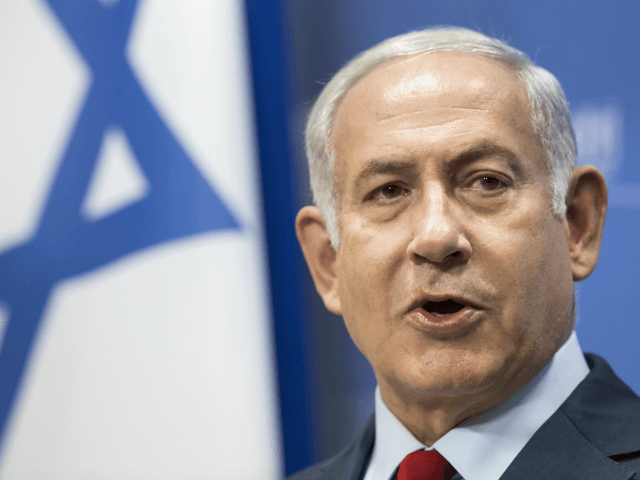Israeli Prime Minister Benjamin Netanyahu has come out against a potential “mini-deal” between the U.S. and Iran, a verbal agreement that would allow the Iranian regime to stop just short of developing a nuclear weapon.
Last week, as Breitbart News reported, Netanyahu seemed to suggest that Israel could “live with” a “mini-deal,” while indicating that Israel would not be bound by it and reserved the right to act to prevent an Iranian bomb.
Under the deal, the New York Times said, Iran would stop enriching uranium at 60% purity, release American hostages, stop attacking U.S. military contractors in the region, and agree not to sell ballistic missiles to Russia.
In return, the U.S. would agree not to increase sanctions, seize Iranian oil tankers, or pursue more resolutions against Iran at the United Nations. Last week, with U.S. approval, Iraq also paid Iran $2.76 billion in gas and electricity bills.
The deal would be unwritten, a provision apparently designed to evade the U.S. Constitution’s Treaty Clause, as well as the Iran Nuclear Agreement Review Act, which allows Congress to reject a deal.
Netanyahu told his Cabinet on Sunday that he is against the “mini-deal,” according to the Jerusalem Post:
“Our first mission is to stop Iran from going nuclear,” Netanyahu said at the opening of the weekly cabinet meeting. “We made clear to our American friends time after time, and I am doing it again today, that we oppose agreements, first of all to the original agreement called the JCPOA, which will just pave Iran’s way to the bomb and will pad it with hundreds of millions of dollars.”
…
“We also tell [the Americans] that more limited understandings, what’s called a ‘mini-deal,’ does not serve our purpose, in our opinion, and we oppose that, as well,” he said.
Critics suggest that the “mini-deal” is aimed more at boosting U.S. President Joe Biden’s reelection bid than in achieving a result in the Middle East. Then-President Donald Trump pulled out of the original deal, struck by President Barack Obama, in 2018, noting that it allowed Iran to become a nuclear power while giving the regime sanctions relief and cash.
Trump’s strategy was to increase pressure on the regime, either causing its collapse or forcing it to come back to the negotiating table to reach a binding agreement, unlike the original Iran deal.
Joel B. Pollak is Senior Editor-at-Large at Breitbart News and the host of Breitbart News Sunday on Sirius XM Patriot on Sunday evenings from 7 p.m. to 10 p.m. ET (4 p.m. to 7 p.m. PT). He is the author of the new biography, Rhoda: ‘Comrade Kadalie, You Are Out of Order’. He is also the author of the recent e-book, Neither Free nor Fair: The 2020 U.S. Presidential Election. He is a winner of the 2018 Robert Novak Journalism Alumni Fellowship. Follow him on Twitter at @joelpollak.

COMMENTS
Please let us know if you're having issues with commenting.